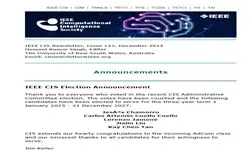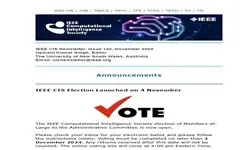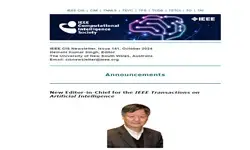The role of aggregation guided by fuzzy quantifiers in Information Retrieval and in Social Media Analytics
Gabriella Pasi
-
Members: FreeCIS
IEEE Members: Free
Non-members: FreeLength: 00:48:45
09 Jul 2017
Gabriella Pasi, University of Milano-Bicocca, Italy
Abstract: Various processes related to the task of Information Retrieval (IR) can be interpreted as Multi Criteria Decision Making activities. The same applies to some tasks related to the analysis of user generated content in Social Media (like for example the assessement of veracity of online reviews). What is particularly interesting in this interpretation is the role of aggregation operators, which, for a given alternative, reduce the performace-scores of the considered criteria into a global performace-score of the alternative. In fact, depending on the selected aggregation strategy, different behaviors can be modelled for the considered process, corresponding to distinct predictive models. These behaviors can be more intuitively captured by guiding the aggregation by means of fuzzy quantifiers (quantifiers guided aggregation). Formally, this can be achieved by employing fuzzy integrals and quantifier guided OWA aggregation. As an example, in Information Retrieval the assessment of the relevance a document (an alternative) to a query can be seen as the process of evaluating the performance of several relevance dimensions (criteria) like topicality, novelty, recency, etc. In relation to the analysis of user generated content, an example is offered by the assessment of the veracity of an online review (alternative), which is based on several features (criteria). In this lecture the impact of quantifier guided aggregation (and of aggregation in general) will be shown in both contexts of IR and of the assessment of veracity of user generated contents. It will be also shown that this quantifier guided aggregation offers an interesting alternative to the application of machine learning techniques (in particular classifiers).
Abstract: Various processes related to the task of Information Retrieval (IR) can be interpreted as Multi Criteria Decision Making activities. The same applies to some tasks related to the analysis of user generated content in Social Media (like for example the assessement of veracity of online reviews). What is particularly interesting in this interpretation is the role of aggregation operators, which, for a given alternative, reduce the performace-scores of the considered criteria into a global performace-score of the alternative. In fact, depending on the selected aggregation strategy, different behaviors can be modelled for the considered process, corresponding to distinct predictive models. These behaviors can be more intuitively captured by guiding the aggregation by means of fuzzy quantifiers (quantifiers guided aggregation). Formally, this can be achieved by employing fuzzy integrals and quantifier guided OWA aggregation. As an example, in Information Retrieval the assessment of the relevance a document (an alternative) to a query can be seen as the process of evaluating the performance of several relevance dimensions (criteria) like topicality, novelty, recency, etc. In relation to the analysis of user generated content, an example is offered by the assessment of the veracity of an online review (alternative), which is based on several features (criteria). In this lecture the impact of quantifier guided aggregation (and of aggregation in general) will be shown in both contexts of IR and of the assessment of veracity of user generated contents. It will be also shown that this quantifier guided aggregation offers an interesting alternative to the application of machine learning techniques (in particular classifiers).


